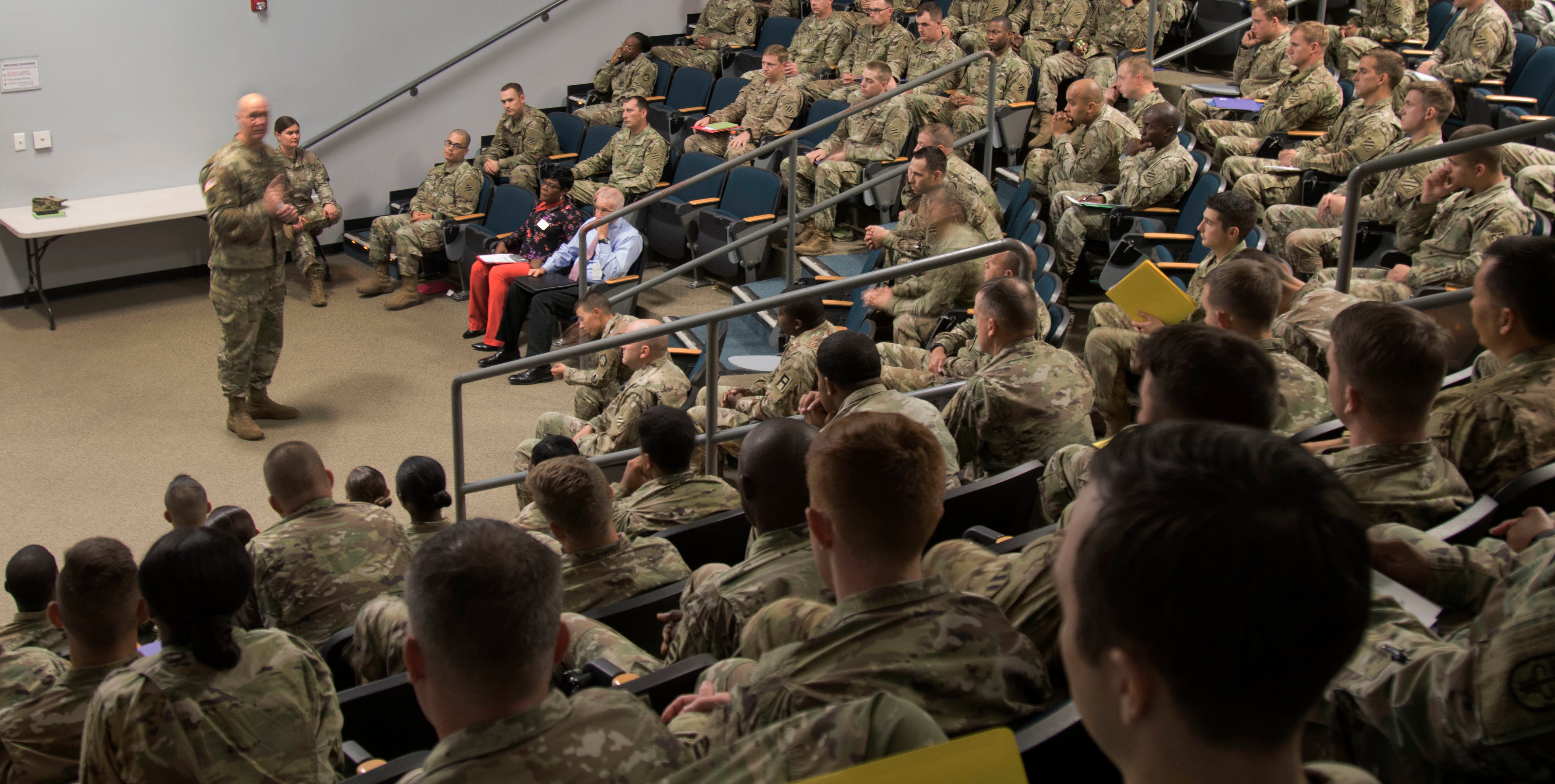Army Is Working Toward Better Training, Certification
Army Is Working Toward Better Training, Certification

Sergeants major and senior NCOs are going to notice changes in the way they are taught – and the way they teach soldiers – if they have not already.
The old way of teaching is not meeting the Army’s needs, fails to prepare soldiers adequately for life after they leave uniform, and provides colleges and prospective employers with an incomplete picture of the skill sets they acquire while on active duty, said Command Sgt. Maj. Jimmy J. Sellers, the commandant of the U.S. Sergeants Major Academy at Fort Bliss, Texas.
“We lack a unified and relevant standardized [approach to] core competencies in NCO [Professional Military Education],” Sellers told an audience of colleagues at this week’s Association of the U.S. Army Annual Meeting and Exposition in Washington, D.C.
Sellers cited surveys conducted among soldiers in ranks ranging from E-1 to O-4 and statistics that show 64 percent of soldiers leave the Army after their first term ends, as justification for the need to change.
“It was confirmed. We are who we thought we were,” Sellers said.
Sellers envisions a future in which training would move soldiers toward desired goals sequentially, as they move up in rank.
Command Sgt. Maj. David S. Davenport, command sergeant major of U.S. Army Training and Doctrine Command, told the audience that the system for training NCOs has changed little since the command was established in 1973.
Soldiers can expect to work on becoming credentialed in skills they learn on active duty.
Davenport dismissed suggestions that the creation of Army University as an umbrella for the service’s educational programs is intended to turn all soldiers into college students.
“That’s not true,” Davenport said.
Rather, he said, the move toward Army University is intended to realign educational programs so that students can compete for college credits, along the lines of the way civilian schools operate.
“As we professionalize our staff, it makes sense,” Davenport said.
Incoming soldiers will write their first resume. As their careers progress, they will update that resume. Along the way, they will be able to accrue credentials, college credits or certifications. Soldiers who opt to leave after one term, ideally, would have at least one certification.
“We’ve let vocational [training certification] fall by the wayside,” retired Sgt. Maj. Joe Parson, the credentialing officer for Army University, told the audience.
This will change, he said, “If we do the job from the moment these soldiers raise their hand. A welder in the Army does everything a civilian one does, and then some,” Parson said.
Full implementation of the Army’s requirement for a credentialing program would help ensure that soldier-welders, and those with other key skills, get deserved credit for what they know.
Nick Adde

